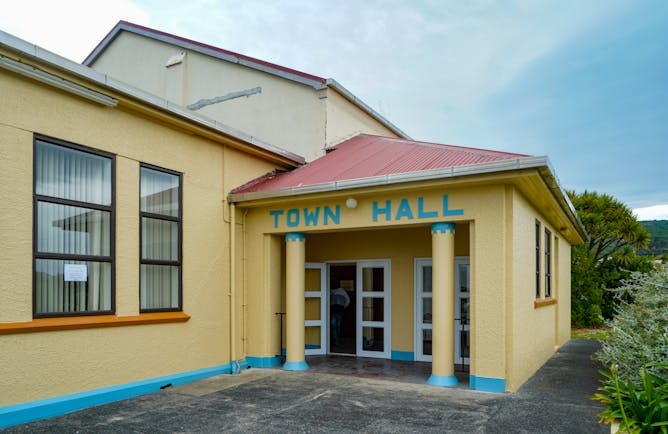|
|
|
|
Nau mai, haere mai – welcome to your newsletter.
A quarter of a century is a very long time in technology. That’s how long it’s been since New Zealand had its last major public discussion, during a Royal Commission of Inquiry, about how gene technologies should be developed and applied.
The specific methods used to edit genes have changed dramatically since then and so the government’s recently announced plan to relax the rules and lift an effective ban on gene tech outside the laboratory likely didn’t come as a surprise to people working in the field. Many will welcome the chance to revisit the issue.
But as a team of social scientists writes this week, the discussions are no less complex today – but they need not be marked by conflict if people’s views are genuinely considered.
The researchers presented study participants with different scenarios of where genetic tools could be applied and found the topic continues to bring strong reactions based on people’s values and beliefs.
“We found this to be especially pointed when talking about the use of these technologies in conservation, environmental protection and food,” they write.
Participants saw the technologies’ potential but sought high levels of regulation and oversight, especially where there are significant unknowns and ethical concerns. They wanted considerable controls, regulation and governance throughout the entire cycle of development and many called for Māori representation at all levels of governance.
Trust was at the core of what people thought about gene tech. Participants expressed concern about the influence of commercial interests on science innovation and about who might own and control the technologies. Our authors found that in communities where trust was low, complex science could easily become contested science.
As always, there’s a lot more to read in this newsletter and on our homepage. If you enjoy reading the Conversation, please share our newsletter with others you think might be interested. Many thanks and until next week – mā te wā.
|

|
Veronika Meduna
Science, Health + Environment New Zealand Editor
|
|

Marie McEntee, University of Auckland, Waipapa Taumata Rau; Fabien Medvecky, Australian National University; Marcus Rongowhitiao Shadbolt, Indigenous Knowledge; Melanie Mark-Shadbolt, Indigenous Knowledge; Micheal Heimlick, Indigenous Knowledge; Vicki Macknight, University of Otago
Discussions about the rules governing genetic technology in New Zealand remain complex. But they need not be marked by conflict, as long as people’s views and values are genuinely considered.
|

Faith Jeremiah, Lincoln University, New Zealand
With more than 200 wastewater ponds, New Zealand has an untapped opportunity to install floating solar panels to increase renewable generation and to reduce algal growth in the ponds at the same time.
|

Rod McNaughton, University of Auckland, Waipapa Taumata Rau
Many higher education institutions are focusing on innovation to be relevant. But this is only half of the puzzle. They also need to be teaching students how to be entrepreneurs.
|

Kris Gledhill, Auckland University of Technology
Judges routinely reduce sentences based on mitigating factors. But a proposal to cap such reductions will potentially lead to fewer guilty pleas and put more strain on a the justice system.
|

Jeffrey McNeill, Te Kunenga ki Pūrehuroa – Massey University
If New Zealand wants to see real improvement in community-level services and infrastructure, we need to finally make a decision on the true purpose of regional, city and district councils.
|

Dan Fastnedge, Auckland University of Technology; Melissa L. Gould, Auckland University of Technology
Ads for the Hell Pizza chain regularly invite complaints on religious grounds. But none have been upheld, reflecting more tolerant standards in an increasingly less Christian country.
|

Collin Bjork, Te Kunenga ki Pūrehuroa – Massey University
Big EdTech is increasingly filling a gap left by university underfunding. But tertiary stakeholders must question whether such “solutions” really contribute to a university education.
|

Jessie Jacobsen, University of Auckland, Waipapa Taumata Rau; Suzanne Musgrave, University of Auckland, Waipapa Taumata Rau
Comprehensive genetic testing can provide a more timely and accurate diagnosis and personalised support for autistic individuals and their families.
|

Claire Dale, University of Auckland, Waipapa Taumata Rau
There is not enough money for New Zealand’s aged care sector – and the demand is only going to rise. The government needs to look at Australia for ways to ensure access for all.
|

Timothy Welch, University of Auckland, Waipapa Taumata Rau
Higher speed limits are coming. But the case against them isn’t based on road safety alone – claims of increased economic efficiency are not supported by the evidence, either.
|
From our foreign editions
|

Melissa Naugle, Southern Cross University; Emily Howells, Southern Cross University; Line K Bay, Australian Institute of Marine Science
Remarkable diversity in heat tolerance can help coral reefs under climate change.
| |

Jeannie Marie Paterson, The University of Melbourne
Woolworths and Coles face potentially massive fines if they are found guilty of misleading shoppers over the price of hundreds of products.
|

Stephen Lyth, University of Strathclyde
While it’s too early to say whether graphene will live up to the hype, it’s now appearing in everything from motorcycle helmets to aircon units.
| |

Hamish Beath, Imperial College London
Off-grid solar energy is a panacea to the electricity crisis in Africa.
|

Joseph Janes, Swansea University
Pink cocaine, an unpredictable and dangerous synthetic drug, is rapidly gaining traction on Europe’s party scene.
| |

Marthinus van Staden, University of the Witwatersrand
Corrective policies should be implemented as part of a holistic, long-term strategy to address historical injustices and create a more equitable South African society.
|

Patrick Parenteau, Vermont Law & Graduate School
As concern about plastic pollution mounts, the federal government is revising its standards for calling products recyclable. A recent fine against Keurig could be a sign of things to come.
| |

Vidhura S. Tennekoon, Indiana University
Anura Kumara Dissanayake touted his victory as a ‘fresh start’ for the South Asian nation, two years after it came to the brink of economic collapse.
|
|
|
| |
| |
| |

|
| |
| |
| |
| |
| |
| |
|
|
|
|
|
|
|